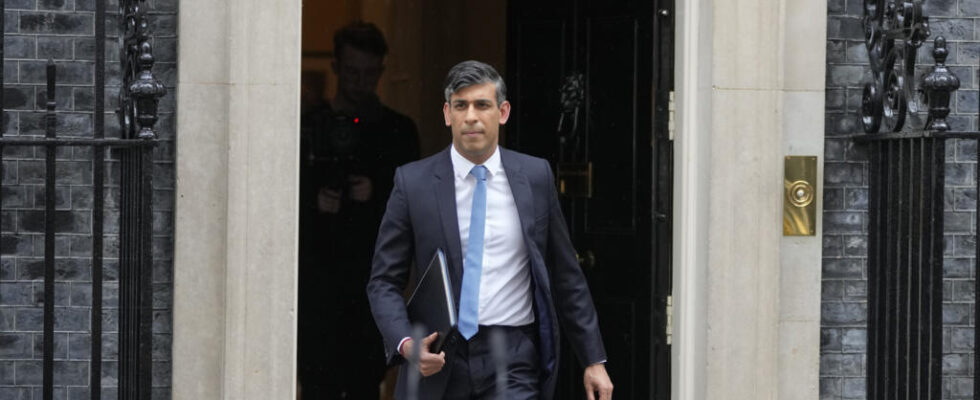Negotiations had lasted for more than six months. Should the British legislative elections, which were to be held before January 25, be brought forward? Rishi Sunak finally announced, this Wednesday, May 22 from Downing Street, in London, that the citizens of the United Kingdom will vote on July 4 to appoint their new deputies.
2 mins
This is a surprise announcement from the British Prime Minister. The legislative elections will therefore be held on July 4, 2024, just before the summer holidays. Summer elections, a rather unusual pattern, while the preferred hypothesis until now tended towards the end of October, or even the beginning of November.
Rishi Sunak seems to want to take advantage of the announcement of the drop in inflation on Tuesday morning. One of the promises of his mandate was the improvement of the economic situation in United Kingdom. The Prime Minister seems to be betting on this positive indicator with a view, perhaps, to limiting losses.
A daring bet, comments our correspondent in London, Émeline Vin. Because all the polls show the Conservatives as big losers in the next elections, up to 20 points behind Labor.
To rereadUK emerges from inflation and economy grows for first time since 2019
In front of Downing Street, Rishi Sunak spoke about his record, as well as the international situation – the wars in Ukraine and Gaza, Chinese espionage… Objective: to convince the British that he represents stability and security.
He also attacked his main competitor and possible successor, Keir Starmer. The leader of the Labor Party had been impatient for months, and he immediately released a campaign clip on the networks. An electoral campaign which has just begun, and which will last six weeks.
The House of Commons in Westminster has 650 seats, they will all be renewed on July 4. In the last legislative elections of December 12, 2019, the Torries then led by Boris Johnson had won a historic majority of 365 seats, compared to 203 for Labor. But at the beginning of May, the Conservative Party suffered heavy defeats against Labor.
Read alsoUnited Kingdom: Keir Starmer, Labor leader, launches his campaign for the legislative elections
